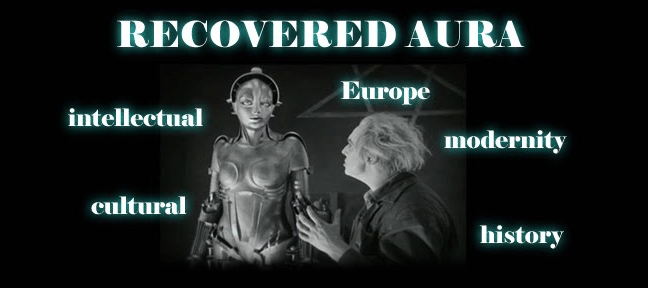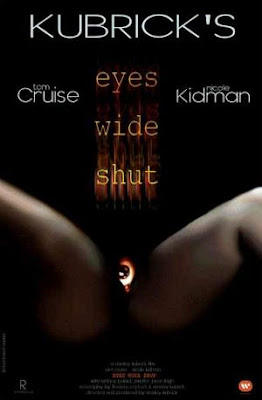- Arthur Schnitzler

Arthur Schnitzler (1861-1931) was an Austrian dramatist, novelist, short story writer and critic, who dealt with the theme of illusion and reality in many variations. Several of Schnitzler's plays and other writings about the decadent mood of fin de siècle Vienna have found their way onto the screen.
Click here for text source and full biography
Schnitzler and Freud moved in many of the same circles but probably never met, although they corresponded with one another by letter. Both men explored the inner life- especially the sexual life- of the middle class. Anxiety, lust, repression, infidelity, deception, social duplicity and the veneers of social custom were the subjects of Freud's psychoanalysis and of Schnitzler's novels and plays.
Here is a letter from Freud to Schnitzler dated May 14, 1922.
This letter was published in 1957 by Time Magazine.
"My dear Doctor:
I shall make you a confession ... I have been struggling with the question of why I have never, in all these years, made an effort to meet you ... I think I have avoided you out of a kind of fear of finding my own double [Doppelgänger Furcht] . . . When I read one of your beautiful works I seem to encounter again and again, behind the poetic fiction, the very presumptions, interests and conclusions so well known to me from my own thoughts . . . Your ability to be deeply moved by the truths of the unconscious, the recurrence of your thoughts to the polarity of love and death—all of this had for me an uncanny familiarity . . . Forgive me for straying into analysis—that is, after all, all I know."
Historian and musicologist Norman Lebrecht has written a fascinating, brief article on the two men and their cultural connections- both explorers of the hidden drives and sexual consciousness of Viennese bourgeois society.
Schniztler's most famous play is La Ronde. It is essentially a sexual daisy-chain, that is a group of men and women connected to one another through sex. Two character go to bed and in the next scene one of them appears with a new partner. That partner then takes up the next episode with someone else and so on. In the last scene the chain comes round again to the first person the play began with. The film version was directed by the legendary Max Ophuls. It is no coincidence that Ophuls was Stanley Kubrick's favorite film director- someone he looked up to immensely both for his choice of subjects and his mastery of cinematic style. Kubrick would become obsessed with Schnitzler's mysterious novella TRAUMNOVELLE or "Dream Story" and would spend forty years trying to figure out how to bring it to the screen. He finally succeeded. It would be his last, and most controversial (some say most misunderstood) film: EYES WIDE SHUT.
 Poster for Ophul's film LA RONDE (1950)
Poster for Ophul's film LA RONDE (1950)
the tag-line was "a wonderful merry-go-round of love with eleven stars"
The opening scene of Ophul's LA RONDE
 Although Kubrick's film EYES WIDE SHUT updates the setting to contemporary New York, all the fin de siecle trappings of late 19th C. Vienna are present. Many critics commented on the surreal quality of this choice- we appear to be in the present historical moment, but situations and characters seem to be obeying rules and customs from an alien, far-off epoch. If you haven't seen the film read the book first and then watch the Kubrick. There's a lot to take in- all very subtle, very slow and very chilling.
Although Kubrick's film EYES WIDE SHUT updates the setting to contemporary New York, all the fin de siecle trappings of late 19th C. Vienna are present. Many critics commented on the surreal quality of this choice- we appear to be in the present historical moment, but situations and characters seem to be obeying rules and customs from an alien, far-off epoch. If you haven't seen the film read the book first and then watch the Kubrick. There's a lot to take in- all very subtle, very slow and very chilling. The gaze of lust or fear?
The gaze of lust or fear?
Vagina ocula? The posterdesigner may be calling on an older form found in Freudian writing, that of the vagina dentata- or devouring "toothed" vagina- ultimate symbol of sublimated male dread.
It is obvious from these posters that TRAUMNOVELLE/EYES WIDE SHUT is told from the male perspective. The female body, "the unknown, desired geography" represents danger, the unknown, even death. Is Kubrick merely commenting or buying into the idea that women truly are the source of many men's anxiety and fascination? Can it be both? I go back and forth on this point when I watch the film- the female body is constantly on display- but it is always shown clinically, coldly--- even culminating in a beautiful naked corpse which the main character believes may have been the woman who saved his life. The more I think about the film the more I believe in Kubrick's dark sense of humor and desire to tell the truth about the repressed-side of human nature. This is all very Freudian of course!
 Freud and Schnitzler were both fascinated with the Romantic German idea of the Doppleganger or ghostly double of a person- said often to appear as an indicator of doom or death. Here the main characters of the story a"loving couple" Bill and Alice, gaze into a mirror as they prepare to make love. ? Freud's French follower Jacques Lacan would later build an entire psychoanalytic theory around the idea of mirroring in the development of the human child.
Freud and Schnitzler were both fascinated with the Romantic German idea of the Doppleganger or ghostly double of a person- said often to appear as an indicator of doom or death. Here the main characters of the story a"loving couple" Bill and Alice, gaze into a mirror as they prepare to make love. ? Freud's French follower Jacques Lacan would later build an entire psychoanalytic theory around the idea of mirroring in the development of the human child.Her secret desire: "If you men only knew..." Alice confesses to Bill that at one point desire so seized her she worried that she might leave her husband and little girl to experience passion with a mysterious stranger. A deeply moving scene from EYES WIDE SHUT
Bill leaves Alice for the night and begins a slow descent into an increasingly bizarre world of sexual temptation and possible physical danger. But nothing is ever consummated- and we are left wondering what is real and what has been merely fantasized or imagined or dreamed.

Disguised in a rented tux and mask, Bill attends a masked ball held in secret at a far-off country mansion. Here the elites of society participate in a strange ritual orgy. Bill is immediately warned by a nude woman in a mask to leave before it is too late. "You don't belong here." she says.
But he tarries too long and is brought into the circle of elites to face punishment. The moment is terrifying, sexually suggestive and never-explained... much like a dream in which one is tantalized and horrified by the taboo. Here sex and death once again merge into a confusing melange of dark things, never fully explained or fully experienced.
 "Would you follow me sir."
"Would you follow me sir." "Kindly remove your mask... now... remove your clothes... or would you like us to do it for you."
"Kindly remove your mask... now... remove your clothes... or would you like us to do it for you."  Red Cloak is the lord of the ritual orgy. His garb in reminiscent of a Catholic bishop, his golden mask that of the legendary Greek King Agamemnon.
Red Cloak is the lord of the ritual orgy. His garb in reminiscent of a Catholic bishop, his golden mask that of the legendary Greek King Agamemnon. Freud's work draws heavily on Greek stories: Oedipus complex, Elektra complex etc.
At the last moment Bill is "redeemed" by the mysterious masked woman. When Bill asks "What is going to happen to that woman?" Red Cloak declares that "no one can change her fate now. When a promise is made here it must be kept." Bill is then warned that he and and his loved ones will be in mortal danger if he ever dares mention what he has seen at the mansion. The promise and the forgetting motif are reminiscent of Nietzsche's ideas in The Genealogy of Morals.





No comments:
Post a Comment